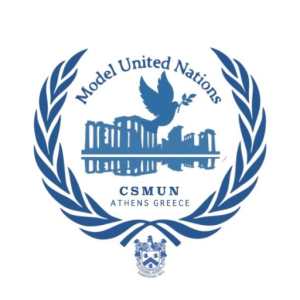
Committees 2025
Below are brief descriptions of the committees offered in CSMUN 2025. Participants may wish to choose their committees based on their difficulty levels and their preferred subjects.
General Assembly
The General Assembly (GA) is the heart of the United Nations — where all 193 member states have an equal voice, no matter their size or power. The GA discusses and works on a wide range of global issues, from maintaining peace and security to promoting human rights, international law, social progress, and sustainable development.

The First General Assembly Committee (GA1) tackles some of the most pressing global challenges, including disarmament and threats to international security. As a key forum for discussions on peace and security, GA1 works to ensure global stability through the regulation of armaments and military technologies. Key issues include the proliferation of nuclear weapons, the management of weapons of mass destruction, and the prevention of conflict in outer space. GA1 also focuses on countering new threats such as cyber warfare and chemical weapons, aiming to create frameworks for disarmament and arms control. GA1 is suited for advanced delegates who have a strong understanding of military policies, global security issues, and the complexities of international diplomacy.
The Second General Assembly Committee (GA2) addresses global economic issues, focusing on macroeconomic policies, international trade, sustainable development, and the eradication of poverty. This committee emphasizes the need for cooperation between nations to tackle economic disparities and ensure financial stability across the world. GA2 discusses topics like climate finance, economic sanctions, and the role of international institutions such as the IMF and the World Bank in managing global economic crises. GA2 is ideal for delegates who have a strong interest in economics, trade policies, and financial governance, as well as those looking to engage with complex global economic dynamics.
The Third General Assembly Committee (GA3) deals with social, cultural, and humanitarian issues that impact vulnerable populations worldwide. It addresses topics such as the protection of refugees, human rights, women’s empowerment, and the welfare of children and marginalized groups. GA3 also explores the impact of poverty, inequality, and education on social development. By focusing on cultural diversity, social justice, and humanitarian assistance, GA3 fosters international cooperation to ensure basic human rights and dignity for all people. This committee is perfect for beginners who are passionate about human rights, social justice, and humanitarian work, as it provides an accessible entry into global diplomacy.
The Fourth General Assembly Committee (GA4) is a platform for addressing complex issues related to political affairs, decolonisation, and the maintenance of international peace and security. This committee discusses topics such as UN peacekeeping missions, the effects of decolonisation, and the political status of territories under colonial rule. It also tackles emerging issues like space exploration governance and the regulation of global cyber activities. GA4 offers a space for countries to work towards political stability in volatile regions and the fair application of international law. It is best suited for advanced delegates who are comfortable navigating political and security challenges and have a deep understanding of international relations.
The Sixth General Assembly Committee (GA6) is dedicated to discussing matters of international law and promoting justice through the legal mechanisms of the United Nations. This committee addresses key issues such as the legal rights of refugees, the fight against terrorism, and the enforcement of international treaties. GA6 also deals with subjects like the legality of military interventions, drug control, and the preservation of the international legal order. This committee is perfect for advanced delegates with an interest in law and legal processes, as it requires a detailed understanding of international legal frameworks and the role of the UN in maintaining global justice.
Specialised Committees
Specialised committees CSMUN provide delegates with the chance to focus on specific global issues, offering a more in-depth and detailed approach compared to the broader General Assembly. These committees simulate real-world organisations like the World Health Organisation (WHO), International Court of Justice (ICJ), and Security Council, addressing topics ranging from international law to global health and security. Specialised committees are typically for delegates with more experience or a particular interest in the subject matter, challenging them to develop practical solutions through debate and negotiation. They provide a unique opportunity to engage with complex issues and refine diplomatic skills.
The Economic and Social Council (ECOSOC) is a critical body within the United Nations, focused on addressing global challenges related to economic development, social justice, and human rights. ECOSOC works to foster international cooperation and promote the overall well-being of populations by coordinating the activities of specialized agencies and NGOs. Key issues include sustainable development, global health, education, and the alleviation of poverty. ECOSOC also plays a significant role in the implementation of the UN’s Sustainable Development Goals (SDGs). This committee is ideal for delegates interested in global economic trends, social equity, and international collaboration on development issues. nec ullamcorper mattis, pulvinar dapibus leo.
The Environmental Commission (EC) focuses on addressing the critical challenges of environmental degradation and promoting sustainable development practices. It addresses global environmental concerns such as climate change, biodiversity loss, pollution, and the sustainable use of natural resources. The commission strives to find actionable solutions to mitigate the impact of human activity on the planet while balancing economic growth with environmental protection. With an emphasis on climate change agreements and conservation policies, the EC is perfect for delegates who are passionate about environmental issues and sustainability. It is especially suited for beginners who are interested in learning about global environmental governance and the challenges of protecting our planet.
The World Intellectual Property Organisation (WIPO) focuses on the protection and regulation of intellectual property rights at the global level. It works to ensure that creators, inventors, and businesses can protect their innovations and creative works through patents, trademarks, copyrights, and other intellectual property laws. WIPO aims to foster innovation while promoting fair use and combating the theft of intellectual property. This committee addresses the challenges of balancing innovation protection with public access, particularly in the fields of technology, medicine, and digital content. It is well-suited for delegates with an interest in law, technology, and the intersection of creativity and business.
Special Conference on “Free Will in the Age of Artificial Intelligence”
This year, the SPECON explores the ethical, legal, and philosophical implications of artificial intelligence (AI) and its impact on human autonomy and free will. With rapid advancements in AI technology, the debate centres on issues such as AI-driven decision-making, privacy concerns, and the rights of individuals in a technologically advanced society. Delegates will engage in discussions on how to regulate AI while preserving human dignity and rights. This conference is ideal for delegates with a strong interest in technology, ethics, and the future of human rights in an increasingly automated world.
The Security Council (SC) is responsible for maintaining international peace and security, making it one of the most influential bodies within the UN. The Security Council discusses and addresses issues such as armed conflict, peacekeeping operations, sanctions, and the use of military force. It has the authority to take binding actions to prevent the outbreak of wars and resolve existing conflicts. The Security Council is designed for advanced delegates who are comfortable engaging with high-stakes international diplomacy, conflict resolution, and the balance of power among the world’s most influential nations.
The Historical Security Council is a continuous crisis committee, making it quite different from the normal MUN committee. Delegates’ decisions and actions will immediately affect the perpetual crisis at hand, and the plots and predicaments that delegates will be asked to deal with are only partially revealed prior to the conference, making for an unpredictable, volatile, and urgent, but undoubtedly exciting, experience. Delegates interested in the HSC will thus need to be prepared to partake in intensive and urgent debate while still possessing a fine-tuned handle on diplomatic conduct. Detailed research and preparation prior to the conference will be important, but wits and the ability to think on one’s feet will also be essential.
The World Health Organisation (WHO) focuses on global public health, aiming to improve health outcomes worldwide and coordinate international responses to health crises such as pandemics and disease outbreaks. WHO works on issues like vaccine distribution, health systems strengthening, and the prevention of health emergencies. This committee also tackles emerging health threats, such as antibiotic resistance and mental health awareness. WHO is well-suited for delegates who have an interest in public health policy, medicine, and international collaboration in health crisis management.
The Human Rights Council (HRC) is dedicated to promoting and protecting human rights around the world. It focuses on monitoring human rights violations, advocating for marginalised groups, and ensuring that countries adhere to international human rights standards. The HRC works on issues such as freedom of expression, gender equality, and the protection of refugees and displaced persons. It provides a platform for dialogue and action on global human rights concerns. This committee is perfect for delegates passionate about social justice, human rights advocacy, and ethical diplomacy. It is especially suitable for beginners eager to explore the intersection of international law and human rights.
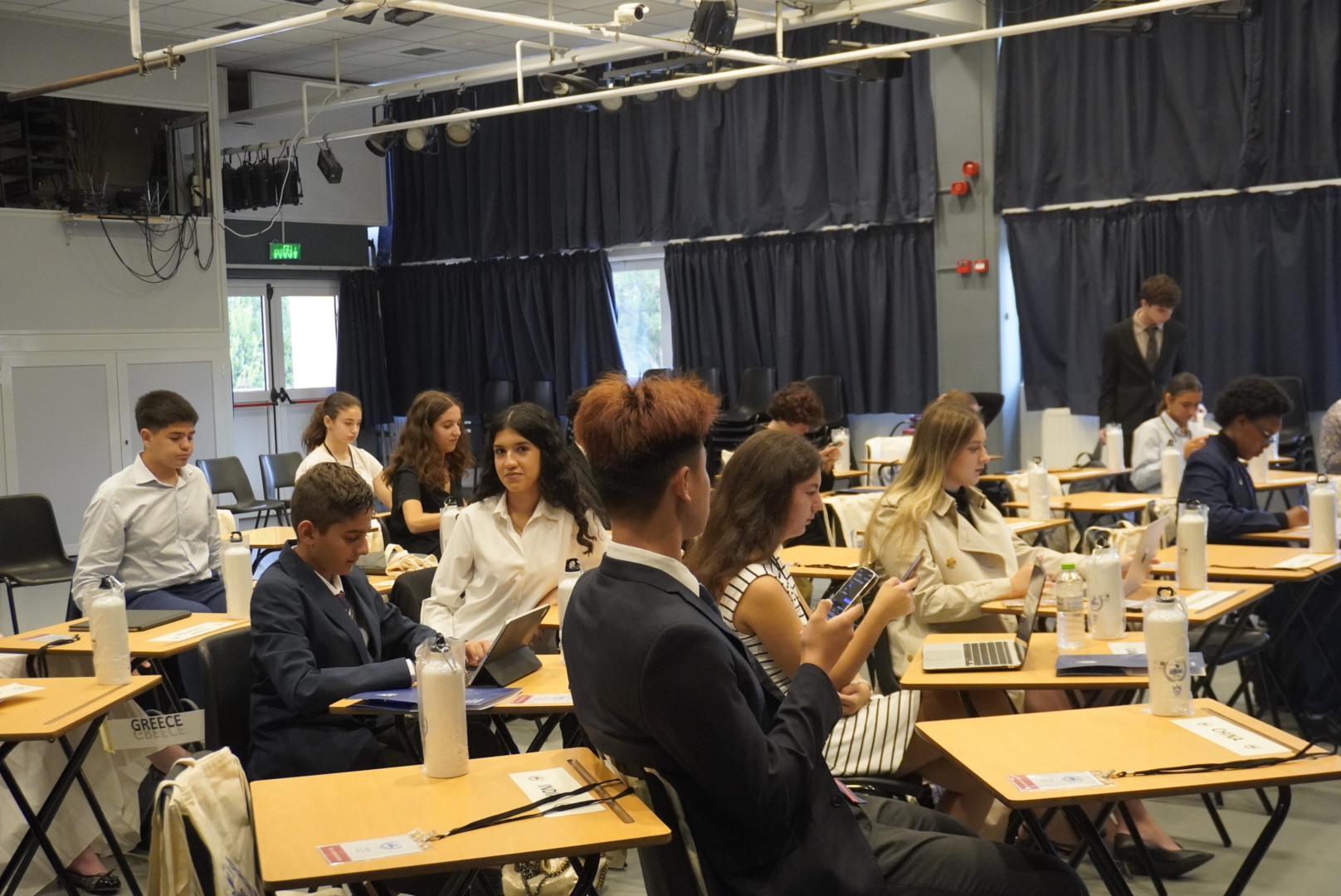
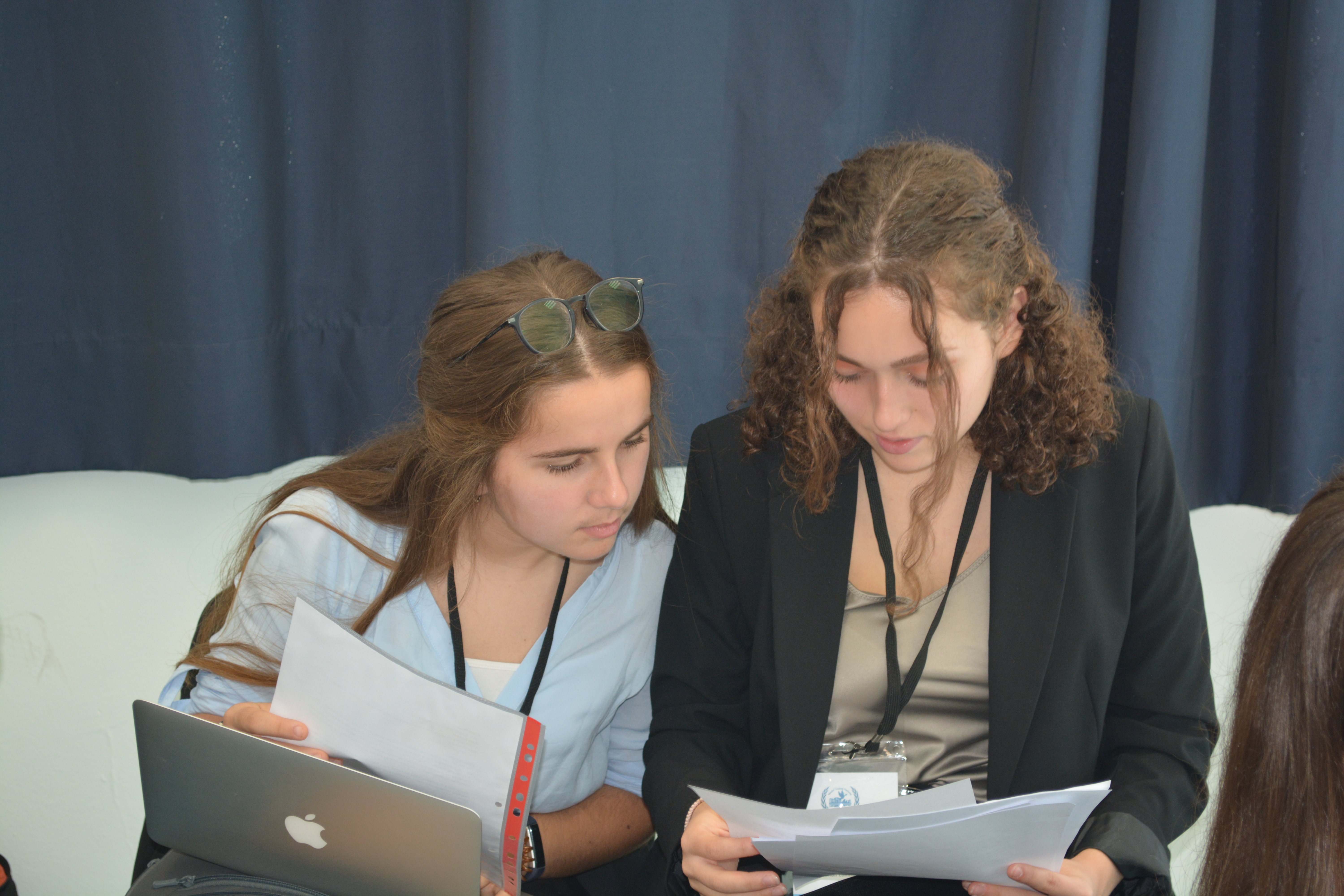
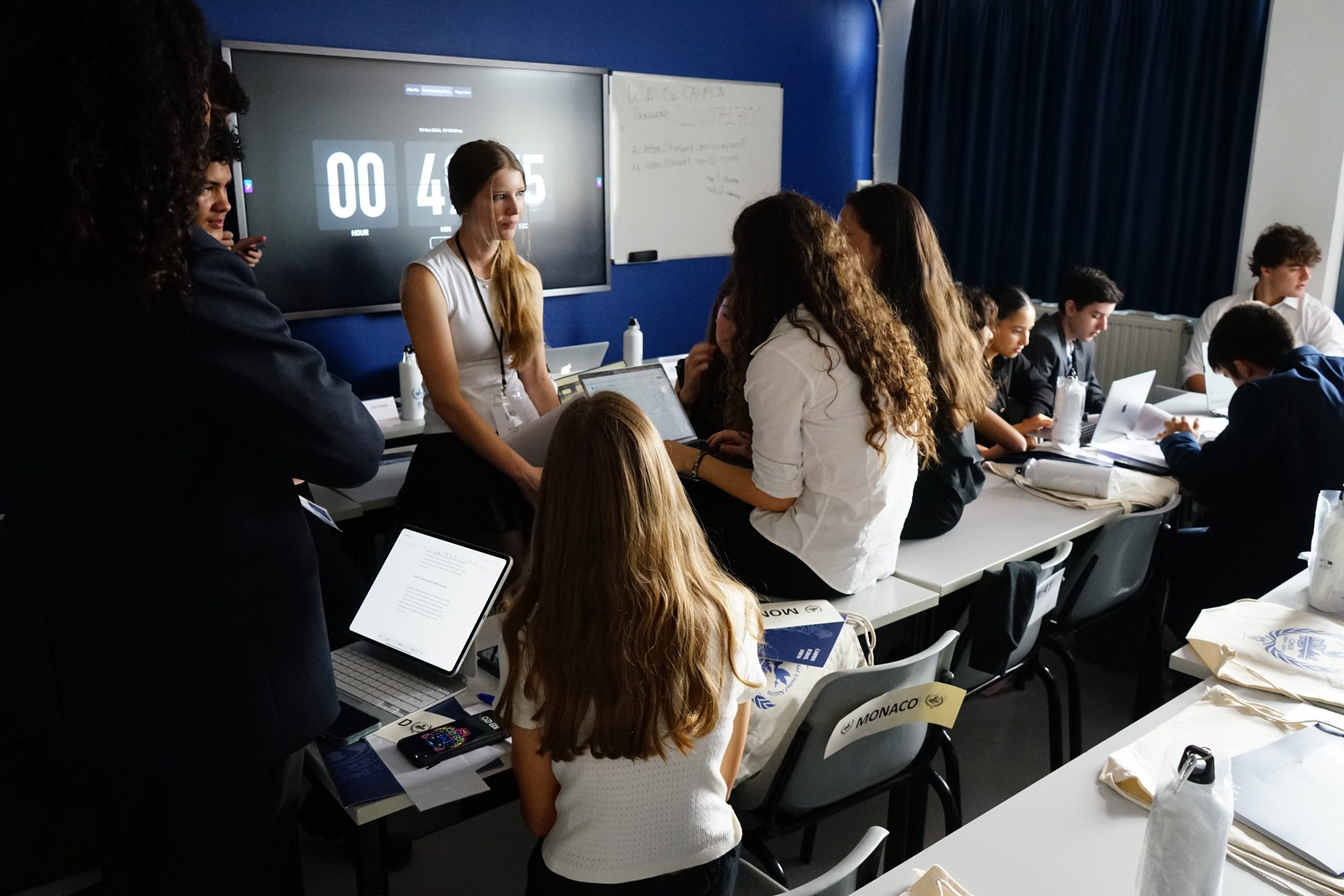

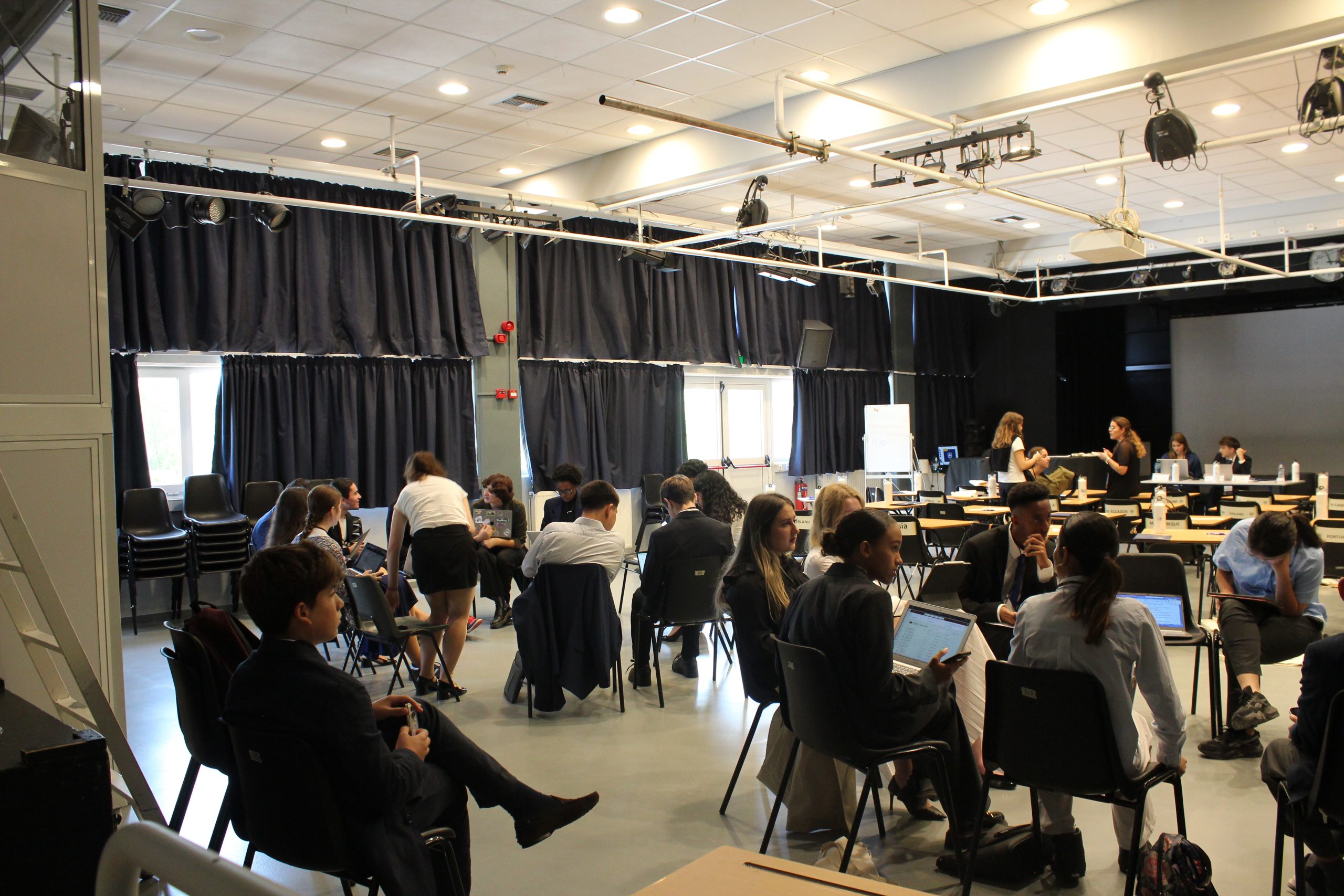
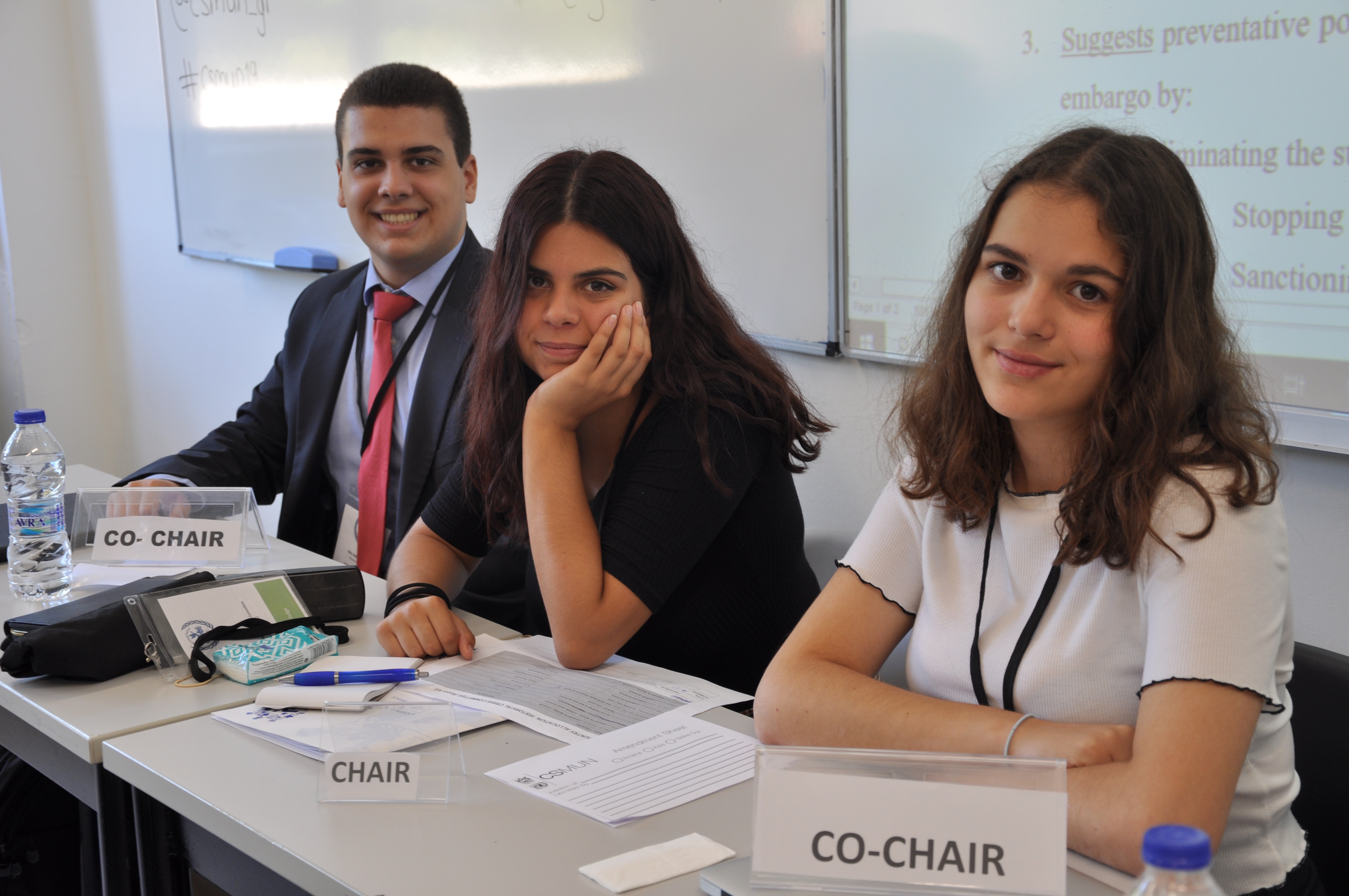
International Court of Justice
The International Court of Justice (ICJ) is the principal judicial body of the United Nations, responsible for resolving disputes between states and providing advisory opinions on international legal questions. The ICJ deals with cases related to territorial disputes, human rights violations, and international treaties and it is ideal for delegates with a keen interest in legal systems, justice, and the enforcement of international law.
ICJ in CSMUN
In the CSMUN, the ICJ simulates the real life courtroom and students act as lawyers or judges to resolve legal disputes between different countries. Judges listen to both sides of the case, while the advocates present arguments using international law to support their assigned country. The judges then deliberate and make a decision based on the evidence presented.
In a trial, advocates begin with opening statements, explaining the case background, their policy, and what outcome they want. They present real evidence, and the other side can object. Witnesses are called to support the case, with leading questions only allowed during cross-examination. Judges then examine the evidence for relevance, reliability and authenticity, and they can object if it fails these standards. In closing statements, advocates summarise key points and answer remaining questions. Throughout the trial, they rely on their memorandum, agreed facts (stipulations), and must meet the burden of proof to win.
Judges: Responsible for evaluating the legal aspects of the case, asking questions and delivering a decision based on the evidence presented.
Advocates: Represent the parties in the case, presenting arguments, evidence, and legal precedents to support their country’s position before the judges.
Registrar: Manages the procedural aspects of the court, including keeping records, managing time, and ensuring the smooth operation of the committee.
Presidents: Oversee the functioning of the ICJ, guide the legal procedures, ensure decorum is maintained, and help facilitate debates and discussions.
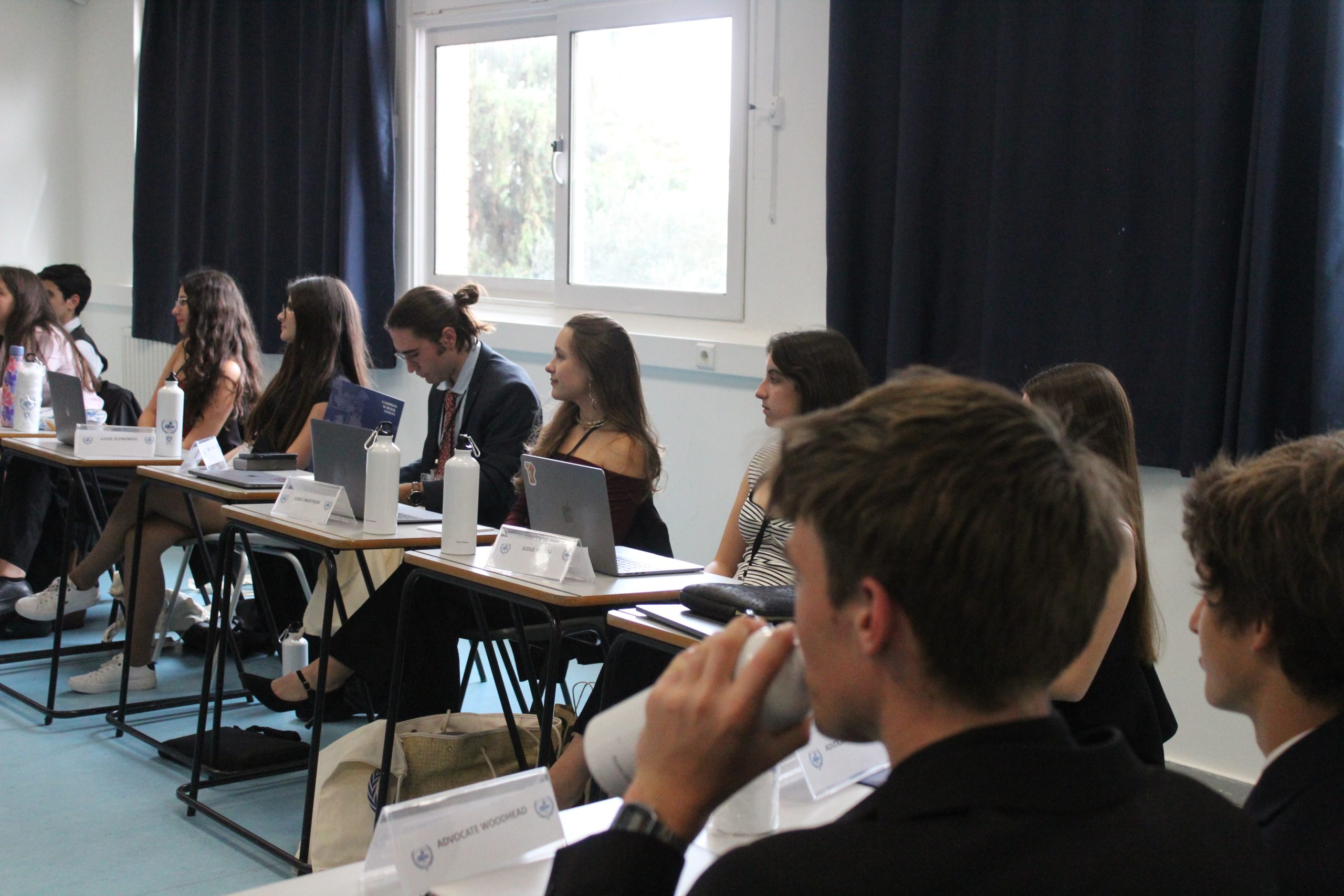
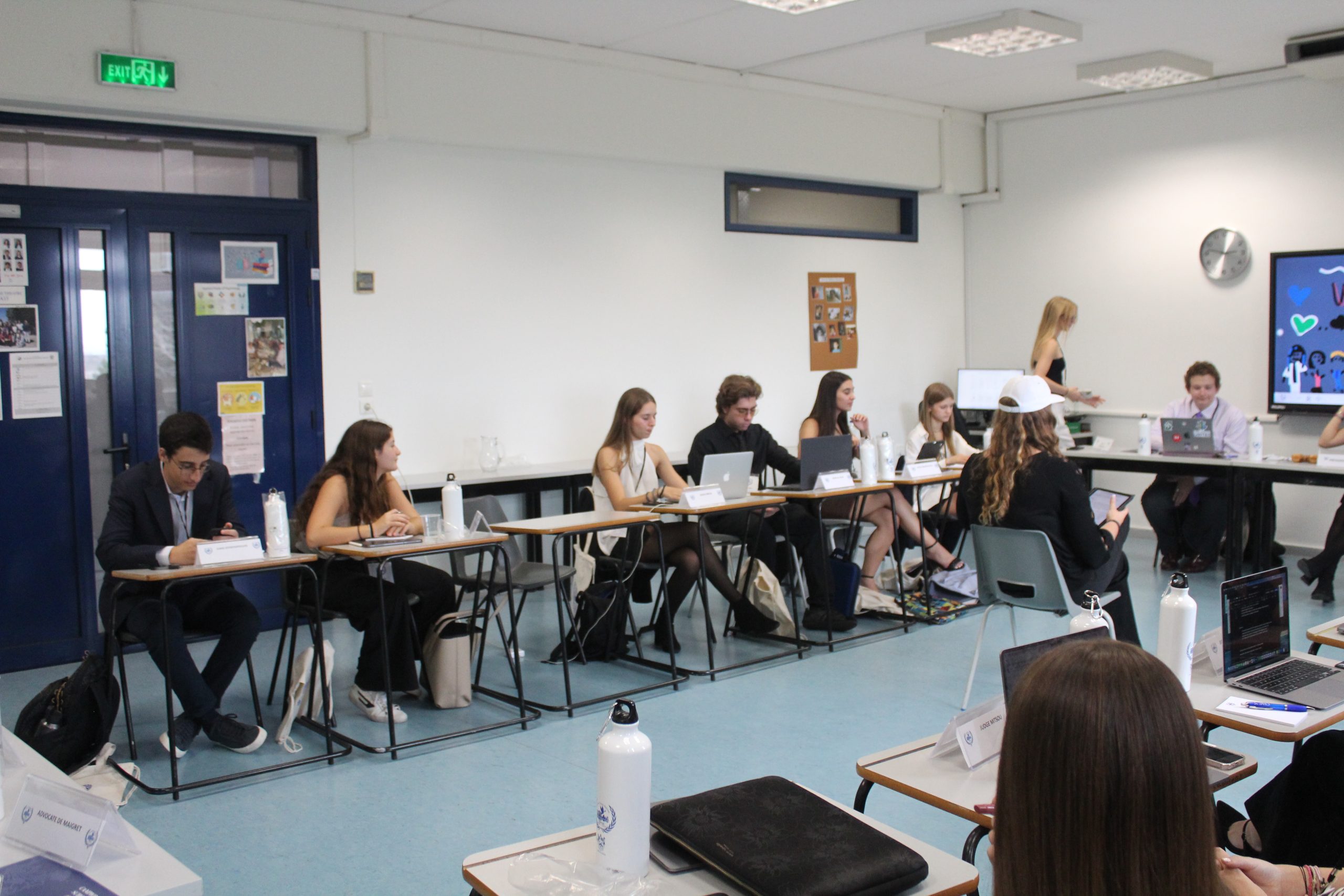
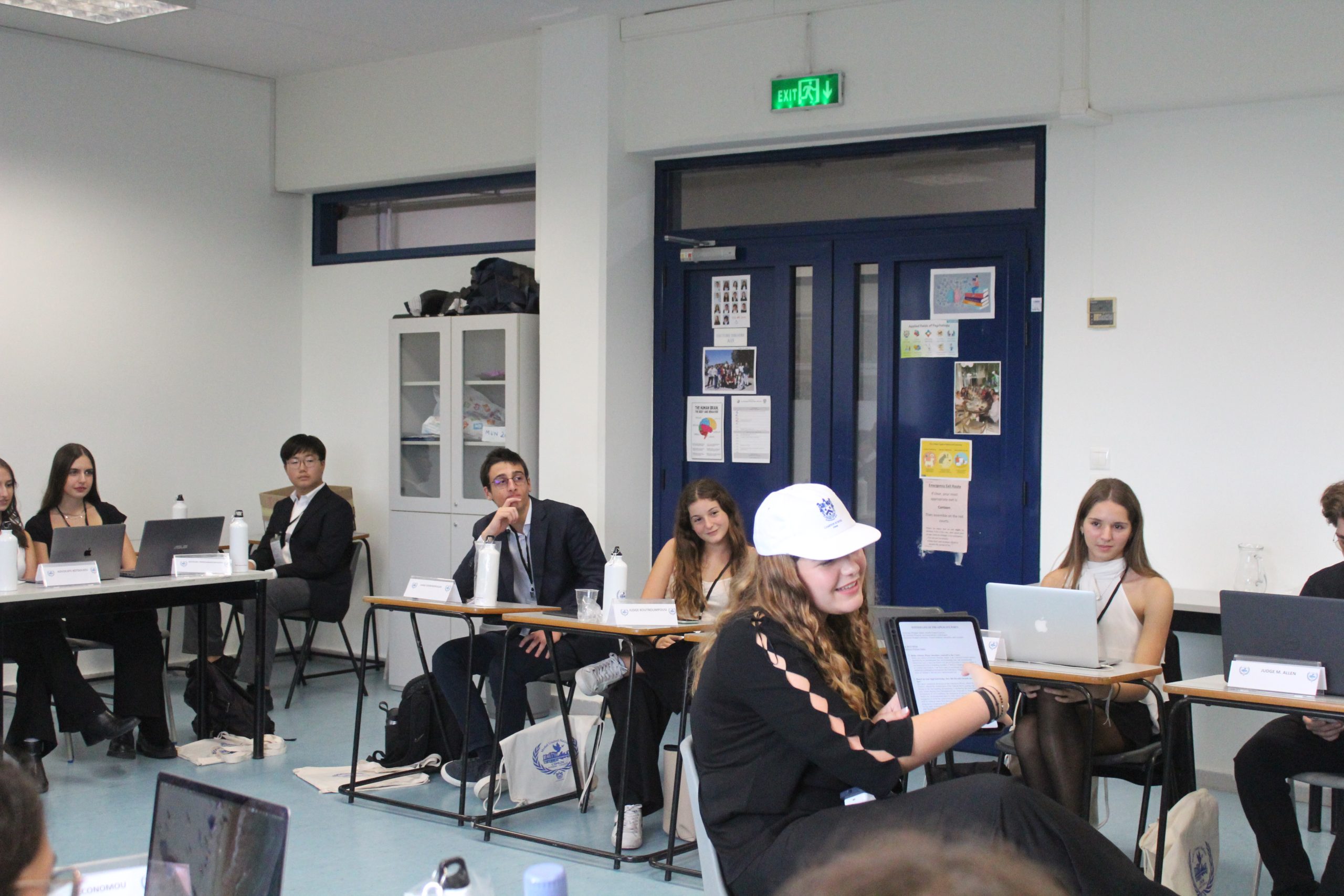
Youth Assembly
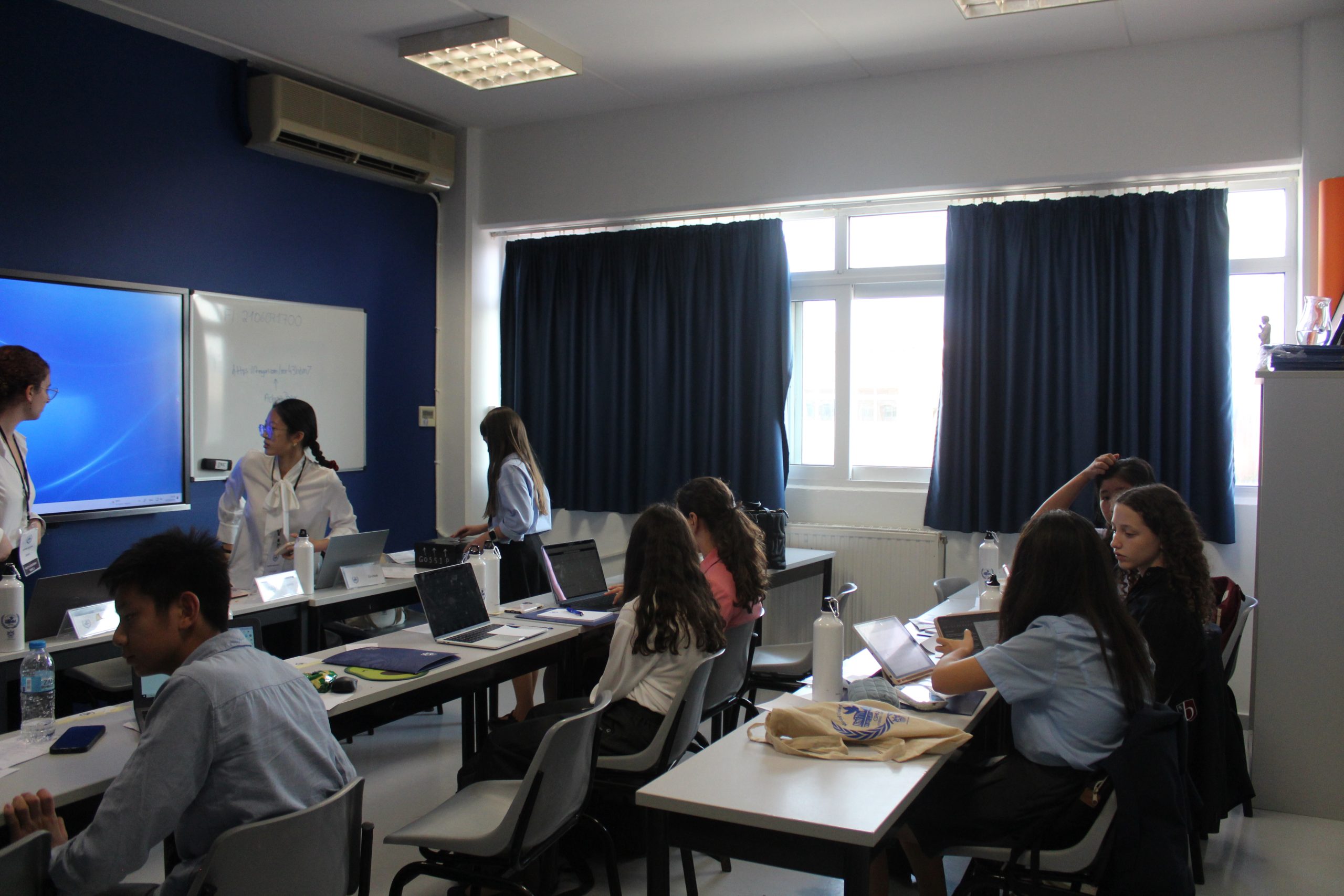


The Youth Assembly is a unique platform where young delegates (usually year 7-8) can come together to discuss and address issues of global importance from the perspective of youth.
The conference provides opportunities for delegates to engage in debates on topics that directly affect the future of younger generations, such as climate change, education, and social equity.
It is designed for new delegates who are interested in starting their MUN journey and want to participate in a less stressful, yet impactful, globally focused discussion on youth-driven solutions.